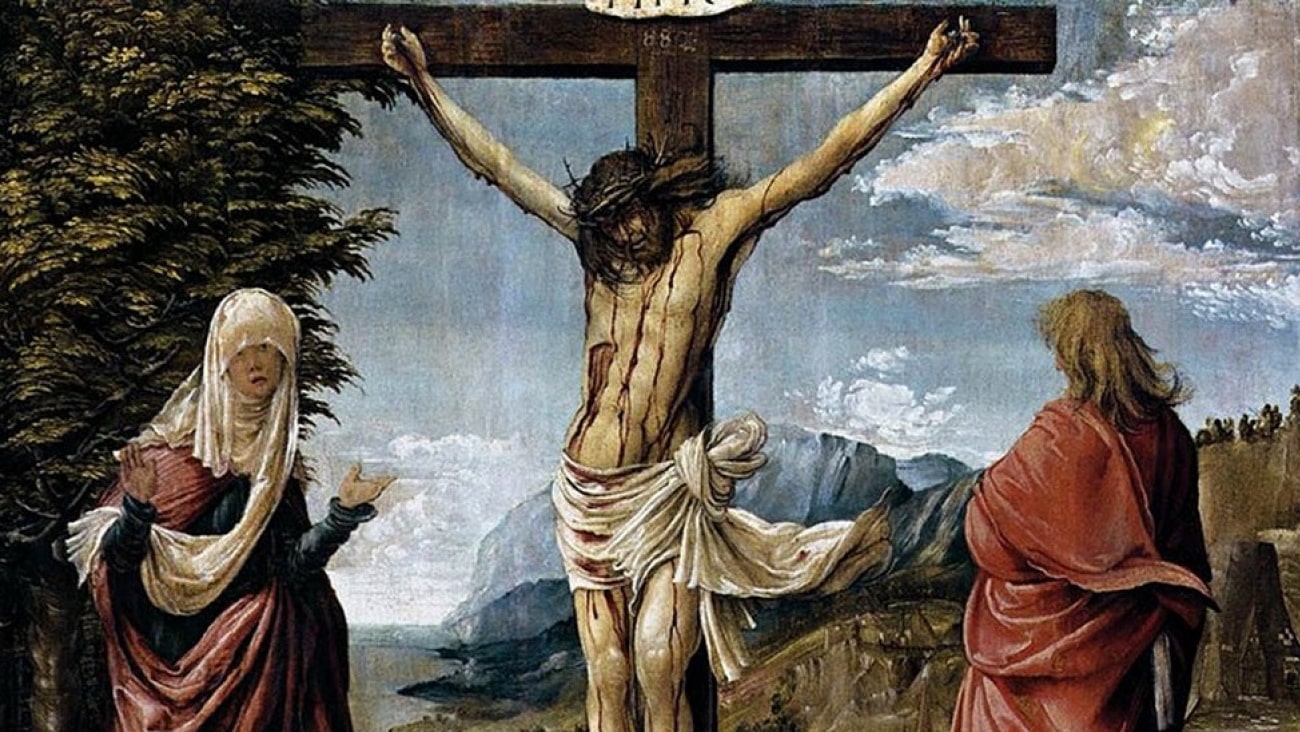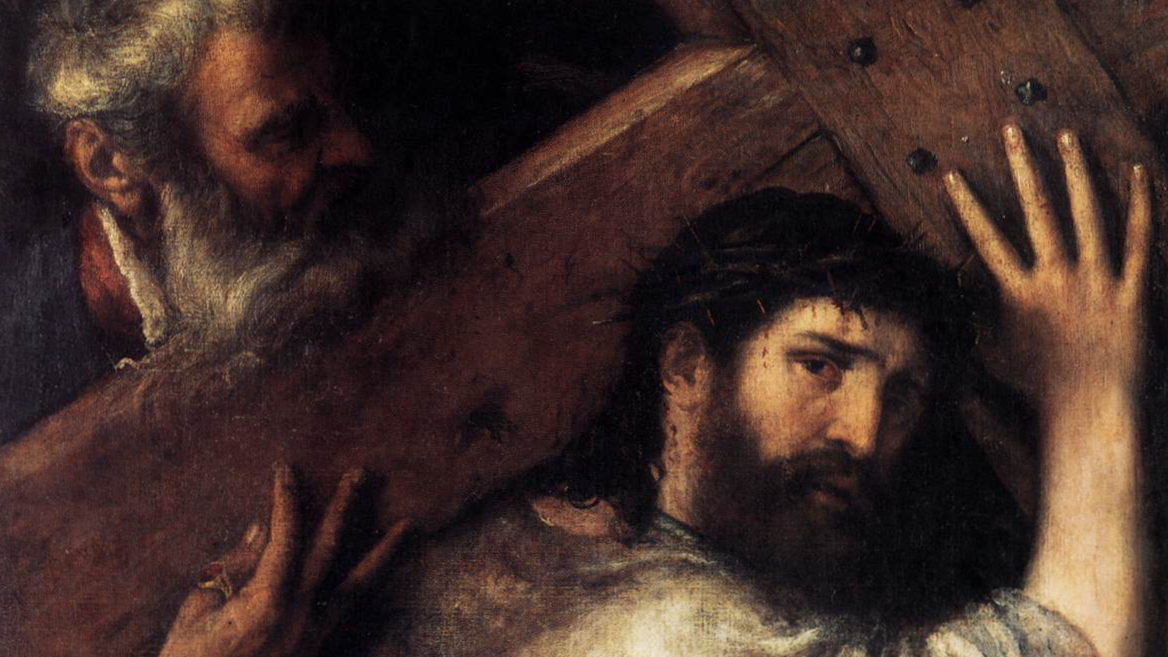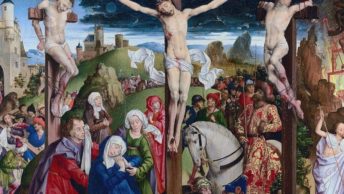On Saturday, September 14 the Church celebrated the Feast of the exaltation of the Cross. One may naturally ask: But why is the Cross to be exalted?
Before rushing to answering this important question we need to pause and think slowly about Who is crucified on the Cross? To begin with, for the Jews the cross was a sign of curse and shame. The book of Deuteronomy speaks about that very clearly when it says: If a man has committed a crime punishable by death and he is put to death, and you hang him on a tree, his body shall not remain all night upon the tree, but you shall bury him the same day, for a hanged man is accursed by God; you shall not defile your land which the Lord your God gives you for an inheritance” (Deut 21:21-22). Thus, according to the vision provided by the book of Deuteronomy, the cross is the sign of punishment for a committed criminal act. The cross is a sign that the person who is hanged, is damned. As a result, the cross is the manifestation of defilement, debasement and corruption. All in all, the cross has to be excluded from society since its evil contaminates the people inhabiting that community.
However, the cross becomes the Cross because of Jesus, the Son of God made man. In his very person, Jesus sanctified the cross so much so that He made it the Cross. From an object of curse he made it the sign of salvation. I am personally fascinated by the use of the word “crucified” in the letters of St. Paul. In his First letter to the Corinthians, Paul shows the power of the Cross, on account of Christ himself when he says: But we preach Christ crucified, a stumbling block to Jews and folly to Gentiles, but to those who are called, both Jews and Greeks, Christ the power of God and the wisdom of God. For the foolishness of God is wiser than men, and the weakness of God is stronger than men (1 Cor 1, 23-25).
Within the same letter, the apostle of the gentiles portrays the spiritual character of the One Crucified when he says in the second chapter: None of the rulers of this age understood this; for if they had, they would not have crucified the Lord of glory (1 Cor 2:8). Interestingly enough, the Lord of glory is the One who lives by the power of God. As St. Paul rightly affirms: For he was crucified in weakness, but lives by the power of God. For we are weak in him, but in dealing with you we shall live with him by the power of God (2 Cor 13:4). Thus, for those who belong to Christ Crucified, they too shall live by the power that comes from His Cross.
But which power are we talking about? The prologue of St. John reminds us that Jesus is the light of men (John 1:4). He is the light [which] shines in the darkness, and the darkness has not overcome it (John 1:5). According to this mystical reflection concerning Jesus Christ’s Divinity and humanity, Jesus is the true light that enlightens every man [who] was coming into the world (John 1:9). And, this true light, who is the Word, became flesh and dwelt among us, full of grace and truth (John 1:14).
Christ’s Cross was the instrument through which we were saved. Jesus himself affirms this bold and life transforming truth in the third chapter of the Johannine Gospel when he said: And as Moses lifted up the serpent in the wilderness, so must the Son of man be lifted up, that whoever believes in him may have eternal life” (John 3:14-15). Thus, the Cross is powerful due to Christ being crucified on it.
The great Byzantine mystic and theologian, St. Nicholas Cabasilas (1319/1323-1392), explains this very well when, in his great work On the Life in Christ, (Περὶ τῆς ἐν Χριστῷ ζωῆς), he emphasizes that union with Christ is carried out by the three great mysteries of baptism, chrismation and the eucharist. Cabasilas writes:
“We were justified, first by being set free from bonds and condemnation, in that He who had done no evil pleaded for us by dying on the cross. By this he paid the penalty for the sins which we had audaciously committed; then, because of that death, we were made friends of God and righteous. By his death, the Savior not only released us and reconciled us to the Father, but also ‘gave us power to become children of God’, in that He both united our nature to Himself through the flesh which He assumed, and also united each one of us to His own flesh by the power of the mysteries.”
Having said that, salvation can work in our lives if we, united with Christ, refuse sin and opt for Christ’s justification through his passion, death and resurrection. In order to make this salvation work in our lives, we need to become one with Him. We need to let him live in us. Fully aware of this necessity, St. Paul wrote in his letter to the Galatians: I have been crucified with Christ; it is no longer I who live, but Christ who lives in me; and the life I now live in the flesh I live by faith in the Son of God, who loved me and gave himself for me (Gal 2:20).
And Christ loved us through humbling himself. In fact, as the letter to the Philippians tells us, He became obedient unto death, even death on a cross (Phil 2:8). In simple words, humility is the powerful trajectory for real exaltation. Whereas the same letter to the Philippians says precisely in the following verse: Therefore God has highly exalted him and bestowed on him the name which is above every name, that at the name of Jesus every knee should bow, in heaven and on earth and under the earth, and every tongue confess that Jesus Christ is Lord, to the glory of God the Father (Phil 2:9-11).
Enthralled by the powerful dynamic of the virtue of humility Pope Francis said during his homily on Monday 14 September 2015 at Domus Sancte Marthae:
“This is also the Christian’s path. If a Christian wants to make progress on the path of the Christian life, he must lower himself, as Jesus lowered himself: this is the path of humility,” which, in the Holy Father’s view, means “bringing humiliations upon yourself, as Jesus did.” The Pope added that this is precisely the message given to us in “today’s liturgy on this feast of the Exaltation of the Holy Cross.” He concluded his morning meditation by asking that the Lord “give us the grace that we ask of Our Lady at the foot of the Cross: the grace to cry, to cry out of love, to cry out of gratitude, because our God loved us so much that he sent his Son to lower himself and allow himself to be crushed in order to save us.”
Humility is the real exaltation of Jesus Crucified in you and me! As St. John the Baptist says so well in John’s Gospel: He must increase, but I must decrease (John 3:30).








